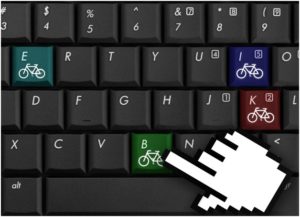Buying A House: The Unforeseen Costs
 Buying a home is one of the most monumental moments of any adult’s life. It is the chance for a new start, to take control of your lifestyle and independence, and have the opportunity to start a family with the one you love. On the flip side, buying a house can be the most stressful, time-consuming and costly affairs of your life.
Buying a home is one of the most monumental moments of any adult’s life. It is the chance for a new start, to take control of your lifestyle and independence, and have the opportunity to start a family with the one you love. On the flip side, buying a house can be the most stressful, time-consuming and costly affairs of your life.
We all know about the major costs of purchasing a property, with the deposit and the mortgage, as well as forking out for furniture for your new home at the top of the list. But there are some unforeseen costs which nobody tells you about until you are already part-way through the process, today we are going to take a look at these hidden costs. It might make you have to rethink whether you can afford to put an offer on the house right now. If you are worried about the down payment on a house, you can always check out this article to let you know how much you should pay.
Attorney’s Fees
The first kicker when it comes to buying a house is the attorney’s fees. You will have already searched for a home, gone for viewings, put an offer in and been accepted before these charges become apparent. It all depends on where you go. There are tonnes of lawyers to go to when you are looking to buy a property, and the fees are relatively standard. However, you can still shop around to find the lowest cost if you like, however, sometimes the lower price is reflected in the service you receive. Consider asking friends and family who they chose and work from there. You may find that the result is a little more pricey, but if you can work with a company that is trustworthy, it is worth the extra cash.
Home Buyer’s Report
When you apply for a mortgage, the lender will ask you to complete a home buyer’s report to check the house for any faults and damage. If the home you are looking to purchase fails the report, the house cannot legally be sold, and you will have to find something else. Although it is an annoyance, it’s in your best interests to have this because it prevents you from buying a damaged property and having to pay out for repairs.
Repairs
If the home buyer’s report passes but comes back with a few minor faults, these are extra costs you will have to consider once you move in. You may have to replace the boiler, make sure windows are double glazed, or tile the roof, which will add to your expenses.
If you don’t opt for a full survey to be carried out, once you move into the property you may be faced with repairs that you weren’t aware of previously. For this reason, it is recommended to get a full survey on any house over 100 years old. If not, you can opt for a slightly less in-depth survey which will still give you information about the inside of the property.
Stamp Duty
Stamp Duty is one of those niggling little costs that only creep up when you receive your contract. Stamp Duty is land tax, which everyone has to pay on their property upon purchase. The tax will range depending on the size and location of the house but is worked out as a percentage of the value of your home. You can calculate it here.
Home Insurance
Home Insurance must be put into place from the data you exchange contracts, meaning that even if you don;t move in on your exchange date, you are already paying home insurance on your property. Paying for your home insurance ahead of moving in is a minor annoyance, however, is essential to secure the safety of your home.
Temporary Accommodation
If you aren’t lucky enough to be living with parents or friends as you go through the moving process, you must think about the cost of your current accommodation. Whether that be your current mortgage or rent, it can eat away at your savings.
Storage Costs
Many people like to start building a collection of items for when they move into a home. You could be beginning to stock up on furniture, appliances, kitchen utensils or towels- but you will need somewhere to store them all. Hiring out a storage unit is a great way to relieve the stress of moving everything from one property to the next, because it will all be in one single location ready to go. However, if you face unforeseen difficulties with your purchase which slow down the process, such as probate or environmental issues, you may have to hire out the unit for a longer period.
Moving Costs
Finally, the day has come where you’ve got the keys to your new home, and you can begin to move everything in. Unless you or a family member have a van you can borrow, you may have to fork out for a moving truck or rent a van for a couple of days to move everything into your home. It can be a long process, but once you have settled, it’s worth it. Shop around to find the best value hire companies in your area.
Random House Costs
Once you’ve moved into your new property, you will be faced with some bills. You will have a few different costs to think about when setting up your home. First up, electricity, gas, and water. Usually, when you take on a property from its previous owner, you can simply transfer the existing setup to yourself- freeing up some time trying to hunt for a new deal. You can, of course, set up your own, and this will involve comparing companies and packages with what suits you. The same goes for broadband, tv, and phones. You may want to set up a package deal with all of these thing included at a discounted rate. It’s up to your personal preference and needs.




